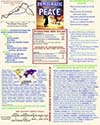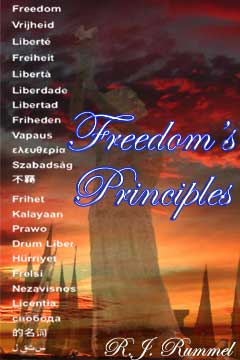I find it more revealing to read the reports or biographies of escaped refugees and political dissidents from an evil dictatorship than what the country-experts write about it. This way I get a sense of the commonplace horror of it all. I just finished reading Kang Chol-Hwan’s The Aquariums of Pyongyang. Kang, you may recall, spent about 45 minutes with President Bush giving him a briefing on his experience. Taken in by North Korean propaganda, his whole extended Korean family emigrated from Japan to the “paradise of North Korea.” Of course, coming from a highly developed and free country to the bankrupt, rigidly control North Korea, his family was loose lipped. Eventually they were all arrested and sent to a forced labor camp when Kang was ten-years old. He and those of his family who survived spent ten awful years there.
This book as mainly about Kang’s experience in the camp, but enough about North Korea itself is described to show that life inside and outside the camps is a matter of degree. Trying to escape the camps means execution if caught; similarly, trying to escape the country means a fast death by execution or a slow one in the camps. A returned escapee is then one of the so-called irredeemables who along with those who spoke out against the regime, or the “revered Great Leader,” are purposely worked to death. And their children with them.
Some things that stick in my mind:
One is that it seems so easy for people’s minds to be so swayed by propaganda as to give up their freedom and wealth in a democracy to enter . . . hell.
Also, as in South Vietnam when it was taken over by the North, everything is a matter of bribes. They are not the lubricant, but the basis of order. Whatever one needs or wants to be done in North Korea was possible if one had enough money or precious goods to barter. Up and down the communist hierarchy, the currency was Omega watches, color TV sets, Japanese Yen, food, and anything else of material value.
Third, are the deaths. Deaths from malnutrition, deaths from lack of medical treatment, deaths from accidents, deaths from everyday beatings, deaths from overwork, deaths from the cold in winter, and deaths from executions. One vignette that sticks in my mind is of three boys that were put to work in a gold mine setting off explosives without adult supervision. They would light the fuses and run. Once they were not fast enough, and two were killed in the explosion and one had half his face blown off.
Fourth is the food, always inadequate, such that painful hunger would cause people to lose their decency, and even take food from their children’s mouths. The ever-present hunger stimulated creativity in catching and nurturing rats for food, catching insects, or finding something to eat in the woods around the camp.
Finally, is the ease with which people were sent to these gulags. No trial, no hearing, no interrogation. Perhaps word from friends or insiders that one was under surveillance would be a first clue of what was to come. But one day, the security police would arrive and haul a whole family, even babies and children, off to one of the camps with virtually no time for preparation or explanation. Or, one might be arrested at work without any chance of one’s family finding out what happened, even when it was separately arrested.
Is this gulag worse than Stalin’s? It’s like asking which is worse, torture with a burning hot iron, or with a knife.
Quite understandably, Kang condemns the South Korean government’s refusal to make human rights in the North an issue, and reluctance to help North Korean refugees, who when caught in China are returned to Kim Jung Il’s loving arms to be executed or worked to death in one of the camps.
His book should be widely read. But, it won’t be by those who need to be educated by it the most.
Link of Note
“N. Korea defector seeks help from Bush” (7/19/05) By Bill Gertz. In The Washington Times
Gertz says:
A North Korean defector who survived 10 years in a prison labor camp said he told President Bush last month that the United States should do more to help those who flee the communist regime. “The people who are at the camps, the [North Korean] government wants to kill them all,” Kang Chol-hwan said in an interview with The Washington Times. “Instead of executing them, they kill them slowly, making them work in forced labor. That was the hardest part.”
What gets me the most about this horror is that it is happening now. Not 60-years ago under the Nazis, or Stalin, or 50-years ago under Mao, or 30-years ago under Pol Pot, but now.



 Posted by rudyrummel
Posted by rudyrummel 






